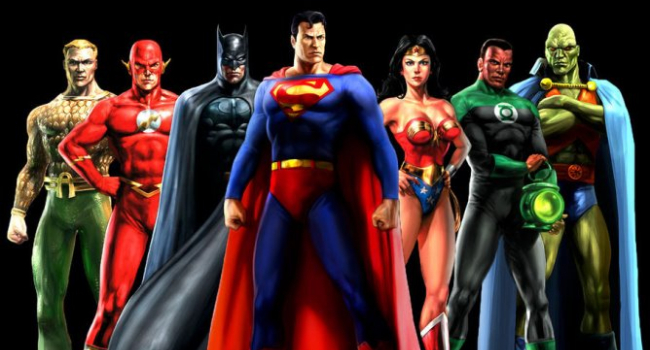- Latest news▼
-
12:16, April 19 Scientists grow human mini-lungs in lab

-
10:23, April 19 JAMA Oncology: Urine test can help rule out high-grade prostate cancer with almost 100% accuracy, study shows

-
18:00, April 18 Daily Mail: Elderly woman in China gets infected with brain-eating amoeba

-
14:19, April 18 Obesity: exercising before breakfast helps you lose weight faster

-
10:42, April 18 The Conversation: childhood trauma can cause pathological hoarding

-
08:37, April 18 Daily Mail: Satiating food reduces cravings for sweets, nutritionist says

-
18:22, April 17 First Armenian-German Conference entitled “Heart Failure Spring School”

-
08:38, April 17 Why do kids usually recover from COVID-19 more easily than adults?

-
14:37, April 16 Daily Mail: intermittent fasting is not suitable for children and women before their periods

-
16:41, April 15 Cell: in carriers of defective BRCA2 gene, sugar consumption increases cancer risk

-
15:04, April 15 305 cases of measles recorded in Armenia so far in 2024

-
14:38, April 15 Food and Environmental Virology: tea contributes to effective coronavirus control

-
12:41, April 15 Daily Mail: vitamin A, B3 and E supplements can be dangerous

-
10:56, April 15 Diabetes Care: evening physical activity is good for the heart

-
08:27, April 15 Women are more susceptible to blood loss and death during bypass surgery than men, researchers say

All materials
Superheroes make long-term impact on child sexuality: study

Superheroes are supposed to empower kids, but some experts say their unrealistic physiques may be undermining that mission.
“Whether it’s Victoria’s Secret, or Batman, or porn, there’s an underlying ideology that makes all of this a coherent narrative about what constitutes masculinity and what constitutes femininity,” Gail Dines, professor of sociology and women’s studies at Wheelock College in Boston, tells Fatherly.
Dines and other experts fear that the sort of body types seen in films such as the Avengers franchise may be contributing to a child’s distorted sense of what is and is not attractive or healthy. And where a cartoon should imply some fictional exaggeration of physical features, the human face atop Thor’s disproportionately broad shoulders and ripped bod or the Black Widow’s curvy figure and tiny waist may lead kids to believe those body types are attainable and desirable.
A study published last month in the journal Evolutionary Behavioral Sciences examined the body mass indexes and corporeal dimensions of 3,752 Marvel comic characters, and revealed that men’s should-to-waist ratios were twice that of a human man. Same goes for women, whose ratios were more extreme than actresses in pornography, who frequently go through plastic surgery to achieve such figures.
“The measurements were far more outlandish than I expected,” study author Rebecca Burch tells Fatherly. “This is not an attainable body shape. This is not even a functional body shape.”
Scientists point out that film and video are more readily absorbed by children because they bypass the frontal lobe, the part of the brain in charge of executive functioning, i.e. memory, judgment and decision-making. Printed media, on the other hand, is processed through the frontal lobe, forcing the brain to contend with the information — helping children rationalize what’s real and what’s fantasy.
Says Dines, “The more consistent and coherent the message is to kids, the more likely they are to internalize that.”
This can have an insidious effect when kids grow up. Past studies have shown that men who are unable to conform to masculine “norms” are also more likely to suffer mental health issues. Similarly, women who are accustomed to objectification of females are more likely to self-sexualize.
Parents can’t always monitor what their kids are watching, so experts advise having lots of conversations about healthy body image, and using resources such as Culture Reframed (for which Dines is CEO), which aims to educate parents and kids on hyper-sexualization in the media, and even provides scripts to help parents prepare for awkward conversations.
Certainly, the Avengers aren’t totally irredeemable, as they do “provide important moral lessons and very little sexual content,” says Burch, but they don’t exist in a vacuum either.
“Perhaps as children reach adolescence, these depictions may influence their bodily expectations or self-image, but this problem is certainly not isolated to comic books.”
Follow NEWS.am Medicine on Facebook and Twitter
- Video
- Event calendar
- Archive
- Most read
month
week
day
- WHO: Nigeria pioneers revolutionary meningitis vaccine 1187
- One-third of women experience menstruation-related migraines, most often during premenopause - study 1181
- Daily Mail: vitamin A, B3 and E supplements can be dangerous 1066
- Food and Environmental Virology: tea contributes to effective coronavirus control 1057
- Cell: in carriers of defective BRCA2 gene, sugar consumption increases cancer risk 1030
- 305 cases of measles recorded in Armenia so far in 2024 1023
- Women are more susceptible to blood loss and death during bypass surgery than men, researchers say 971
- Diabetes Care: evening physical activity is good for the heart 927
- Daily Mail: intermittent fasting is not suitable for children and women before their periods 853
- First Armenian-German Conference entitled “Heart Failure Spring School” 622
- Why do kids usually recover from COVID-19 more easily than adults? 521
- Obesity: exercising before breakfast helps you lose weight faster 521
- The Conversation: childhood trauma can cause pathological hoarding 509
- Daily Mail: Elderly woman in China gets infected with brain-eating amoeba 507
- Daily Mail: Satiating food reduces cravings for sweets, nutritionist says 484
- Find us on Facebook
- Poll





